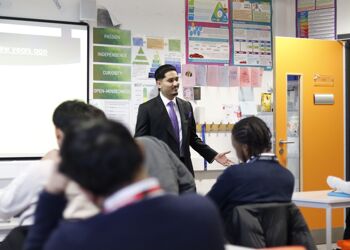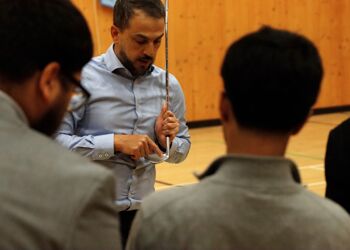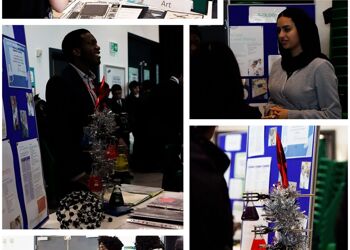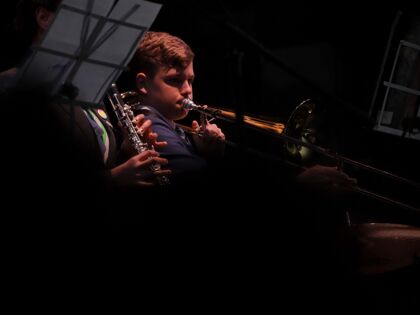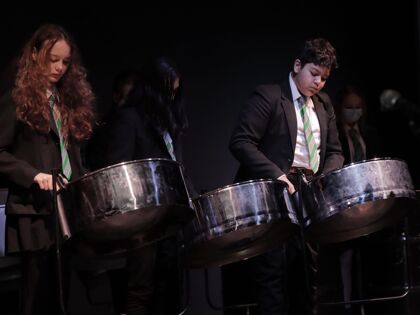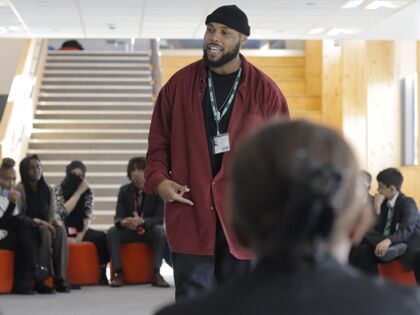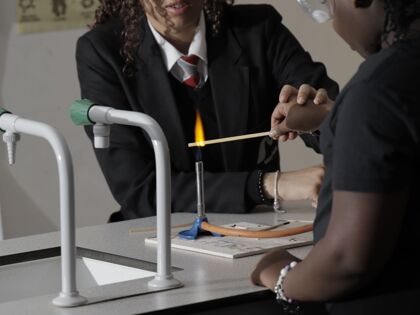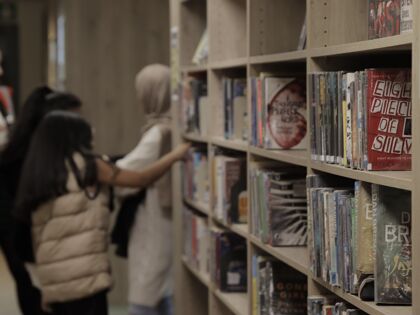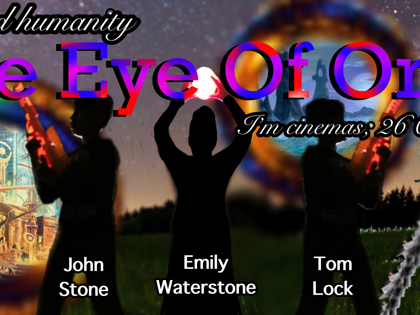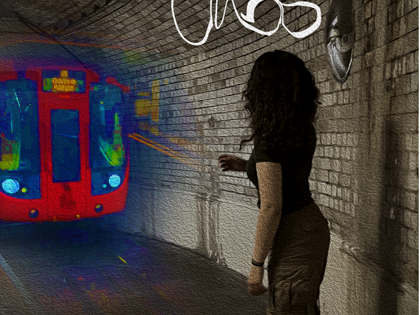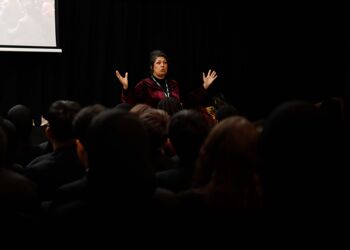 15th Dec
15th DecCurriculum for Year 7
History: Curriculum Plan
History: Year 7 |
|||
|---|---|---|---|
Term 1Sept - Nov |
Term 2Dec - Feb |
Term 3Mar - May |
|
|
What Subject Knowledge will we be learning?
|
Unit: What is History? Focus of Unit: Learning the key skills within History. In this unit pupils will learn the main skills and techniques needed to develop as a historian, using three main case studies:
|
Unit: The Romans Focus of Unit: To explore who the Romans were and the legacy they left behind. What was the Roman Empire?
|
Unit: William the Conqueror Focus of Unit: To explore the Battle of Hastings and its impact, concentrating on how William became King and controlled England.
|
| What skills will we be developing? |
Exam Skill: Historical Report Gatsby: Archaeology |
Exam Skills:
British Values: Understanding of how citizens can influence decisions making through the democratic process. |
Exam Skills:
|
| How will my Teacher know I have learnt these things? |
Assessment prep on Medicine and Toilets (assessing change over time). End of term assessment. All: Being able to identify the different types of sources/evidence. Most: Be able to examine sources to find out about the past. Some: Be able to make judgements based on sources. |
Assessment prep on Roman Religions. Checks on 'describe and explain' questions. End of unit assessment. All: Being able to describe features of the Roman Army. Most: Being able to explain reasons for change. Some: Being able to explain how sources are useful. |
Assessment prep on Battle of Hastings. Checks on 'infer and describe' questions. End of unit assessment. All: To infer two points from sources. Most: Be able to explain a variety of factors for success and failure. Some: Being able to create a balanced argument with justification. |
Religious Education: Curriculum Plan
Religious Education: Year 7 |
|||
|---|---|---|---|
Term 1Sept - Nov |
Term 2Dec - Feb |
Term 3Mar - May |
|
|
What Subject Knowledge will we be learning?
|
Unit: Main Religions Focus of Unit: To understand key aspects of the six main religions and their beliefs and practices. In this unit pupils will learn about different denominations within religions and key celebrations with in the following religions:
|
Unit: Identity and Belonging Focus of Unit: To explore what is meant by identity and how this links to society in general to lend a sense of belonging. In this unit pupils will learn what religion teaches about how we should respond to concepts of:
|
Unit: Religious Founders Focus of Unit: To explore key religious figures and their significance today. In this unit students will learn about religious founders and key religious figures in religions and how what they taught is relevant today:
|
| What skills will we be developing? |
Exam Skills:
Exam Skill: Explaining key beliefs Explain religious beliefs.
Gatsby: Imam, Priest, Granthi or Pandit etc. |
Exam Skills:
Exam Skill: Explaining key beliefs Explain religious beliefs.
British Values: Tolerance and being part of a multi-cultural and diverse society |
Exam Skills:
Exam Skills: Evaluation
|
| How will my Teacher know I have learnt these things? |
Assessment prep on being able to explain two religious beliefs about festivals. End of term assessment: All: Being able to identify and list the different types of religious celebrations/festivals Most: Be able to explain religious beliefs about the celebrations/festivals Some: Be able to include scriptures to support their answers |
Assessment prep on being able to explain religious beliefs regarding the importance of looking after the environment. End of term assessment: All: Be able to give a simple explanation of how we should look after the environment Most: Being able to give a detailed explanation of religious views about looking after the environment Some: Be able to include scriptures to support their answers |
Assessment prep on the significance of religious founders.
End of term assessment: All: Be able to give their opinion in response to the statement Most: Be able to explain religious views about the statement Some: Being able to create a balanced argument supported with evidence |
Drama: Curriculum Plan
Drama: Year 7 |
|||
|---|---|---|---|
Term 1Sept - Dec |
Term 2Jan - Mar |
Term 3Apr - Jun |
|
|
What Subject Knowledge will we be learning?
|
Unit: Introduction to Drama Focus of Unit: Learning the key basic skills within Drama and to be able to put together a scene and perform as a character. In this unit of work, students will learn the basic skills needed to put together a performance that makes sense. They will also learn the key skills needed to create a character that is different to themselves. |
Unit: Pirates Focus of Unit: To develop their character building skills and be able to perform as a range of characters. This unit will work on expanding students' creativity and the ability to play characters that are completely different. They will also focus on getting together longer pieces of work. |
Unit: Character Focus of Unit: To develop character building skills and create believable characters. This unit really focuses on students putting together all of their character building skills and making sure they are a character. |
| What skills will we be developing? |
Lesson 1: 4 C’s, rules, and getting to know each other. Lesson 2: Freeze frames and scene. Lesson 3: Structure. (Flashback) Lesson 4: Space and staging. Lesson 5: Genre HL – Scary story. Lesson 6: Atmosphere. Lesson 7: Assessment. Exam skills:
Gatsby: How to be a successful performer. Performing/presenting on your own. British Values:
|
Lesson 1: Teacher in role hot seating. Lesson 2: Putting together three different scenes. Lesson 3: What happens next? HL – write a diary entry Lesson 4: Whole class Drama Lesson 5: Physical Theatre and Soundscape Lesson 6: Assessment Exam skill:
British Values:
|
Lesson 1: Who are you? (Character development) Lesson 2: The disaster! (Narration and Thought Tracking) Lesson 3: Family of… (stereotypical characters) Development of realistic/believable characters. Physical and vocal acting skills and being able to combine them. Exam skills:
Gatsby:
British Values:
|
| How will my Teacher know I have learnt these things? |
Students will be observed and notes will be taken as mini assessments throughout the term. Students will have a final assessment to see if they are capable of putting all skills together All: will be able to use at least one physical acting skill e.g. body language, gestures etc. in a freeze frame. Will be able to move on stage. Most: will be able to use more than one physical acting skill in a freeze frame and be able to use at least one when acting in a scene. Will be able to speak on stage in their own voice. Some: will be able to use more than one physical acting skill when performing a scene and be able to speak on stage using at least one vocal skill e.g. volume, pitch, pace. |
Students will be observed and notes will be taken as mini assessments throughout the term. Students will have a final assessment to see if they are capable of putting all skills together All: will be able to use more than one physical acting skill in a freeze frame and be able to use at least one when acting in a scene. Will be able to speak on stage in their own voice. Most: will be able to use at least one vocal skill consistently when performing e.g. pitch, pace, tone. Will consistently be using physical acting skills when performing. Some: will be able to create a believable character using both physical and vocal skills e.g. pitch, pace, tone, gestures, levels, facial expressions, to create a character different to themselves. |
Students will have their final Year 7 assessment at the end of the half term to see if they are capable of putting all skills together from throughout the year. All: will be able to use more than one physical acting skill in a freeze frame and be able to use at least one when acting in a scene. Will be able to speak on stage in their own voice and attempt using vocal skills. Most: will be able to create a character different to themselves using physical and vocal skills but there will be some inconsistencies. Some: will be able to create a believable character using both physical and vocal skills e.g. pitch, pace, tone, gestures, levels, facial expressions, to create a character different to themselves. |
Modern Foreign Languages: Curriculum Plan
Languages: Year 7 |
|||
|---|---|---|---|
Term 1Sept - Nov |
Term 2Dec - Feb |
Term 3Mar - May |
|
|
What Subject Knowledge will we be learning?
|
Units 1-4 Foci: to introduce foundational vocabulary and the key skills for learning grammar and linguistic competence. In these units pupils will learn:
|
Units 5-8 Foci: to consolidate grammar and vocabulary and develop linguistic competence. In these units pupils will learn:
|
Units 9-13 Foci: to consolidate grammar and vocabulary and develop linguistic competence. In these units pupils will learn:
British Values: Tolerance and respect for a range of family situations / respect for diversity and an appreciation of different cultures and curriculum links- Geography |
| What skills will we be developing? |
Exam skills: 1) Listen to the following people introduce themselves and write key details 2) Read / write the following dates and translate into English and or French/Spanish |
Exam skills: 1) State 2 activities you like to do in your free time and give reasons why you like these activities. 2) Re-write the following nouns in the plural form 3) Spot the mistakes in these sentences |
To continue to use language across the key skills in MFL by developing:
Exam skills: 1) Listen to the following sentences in French/Spanish and accurately write down what you hear. 2) Translate the paragraph about someone describing their family into French/Spanish. |
| How will my Teacher know I have learnt these things? |
Regular formative assessments in class to gauge pupils’ grasp and understanding of key concepts and vocabulary. All: Be able to introduce themselves: name/age/birthday Most: Will have learnt personal introductions plus 10 classroom items Some: Will understand and be able to apply the concept of gender (masculine/feminine and plural adjectival agreements |
Regular formative assessments in class to gauge pupils’ grasp and understanding of key concepts and vocabulary. All: Should have a better grasp of gender (masculine and feminine nouns and adjectives) Most: Be able to apply gender agreement across a range of topics and vocabulary Some: Be able to apple gender / plural / adjectival agreements consistently across a range of topics in spoken and written tasks |
Regular formative assessments in class to gauge pupils’ grasp and understanding of key concepts and vocabulary. All: Should recognise cognates and apply them in reading and listening strategies Most: Understand longer passages – encompassing all of the vocabulary and structures from previous topics Some: Apply grammar consistently well to write creatively, independently and accurately about friends and family |
Music: Curriculum Plan
Music: Year 7 |
|||||
|---|---|---|---|---|---|
Half Term 1 |
Half Term 2 |
Half Term 3 |
Half Term 4 |
Half Term 5 |
|
|
What Subject Knowledge will we be learning?
|
Recorder & Music Theory In this unit, students will begin to learn the basics of music theory by applying them to learning how to play the recorder, which will be given to them for free at the beginning of the year. Students will look at pitch, rhythm, and staff notation, as well as technique and performance in their first half term of Music at Mayfield. |
Singing In the run up to Christmas, Students will be learning to sing, and will be practising a song that they will perform at the Christmas Concert at the end of the term. Students will continue to apply their theory knowledge through reading music, while also beginning to develop their aural awareness skills enabling them to recognise different pitches just by hearing them. |
Instruments of the Orchestra During this unit, students will cover information about the orchestra and the different instrument families within. As well as this, they will learn a piece of music as a class that is divided up into four different sections, just how an orchestra would be. Students will get the chance to use other instruments including the ukulele, glockenspiel, and other percussion instruments for their performance. They will continue to develop their notation reading skills, and begin to look at performing as part of a larger ensemble. |
African Music For this unit, students will learn about the music from West Africa and its cultural traditions and context. Students will begin to apply their musical theory knowledge to a style of music more unfamiliar to them, and deepen their understanding of both pitch and rhythm by completing a composition task. They will be working in small groups, and be using instruments such as the recorder, glockenspiel, and African drums and percussion instruments. |
Composition For their last half term of year 7, students will be asked to complete an extended composition using the instruments they have been practising on throughout the year. Students will apply all of the knowledge they have gained so far on music theory, composition, and performance in order to create a short piece of music that demonstrates all of the elements that we have covered in the previous units. |
| What skills will we be developing? |
|
|
|
||
| How will my Teacher know I have learnt these things? |
|
|
|
||
Art: Curriculum Plan
Art: Year 7 |
|||
|---|---|---|---|
Term 1Sept - Oct |
Term 2Oct- Feb |
Term 3Mar - May |
|
|
What Subject Knowledge will we be learning?
|
Unit: Observational Drawing Exam Focus of Unit: In this unit students will learn the main skills and techniques needed to draw accurately from observation. Topics Covered:
Gatsby Benchmark
|
Unit: Decorative faces Focus of Unit: To develop understanding of colour and pattern to successfully design a decorative face. Develop knowledge of the proportions of the human face to accurately draw out features. Topics covered:
Gatsby Benchmark
|
Unit: Decorative faces Focus of unit: To colour a decorative face effectively using powder paints. In this part of the unit students will learn how to successfully mix the paint and apply to their design will skill and accuracy. Topics covered:
Gatsby Benchmark
|
| What skills will we be developing? |
|
|
|
| How will my Teacher know I have learnt these things? |
All: Have drawn from observation, used measurement and added tone to their drawing. Most: Have drawn from observation by measuring and using the blocking technique. Then Added a range of tones to their drawing. Some: Have drawn from observation sensitively, including all fine details. Accurately used measurements, blocking technique and applied a full range of tone. |
All: have used a range of colours and areas of pattern in their design. Have filled the face with pattern and colour. Most: have created a design that is carefully thought out with patterns within larger areas of simple shapes and the features are placed using the correct proportions. Have used all primary, secondary colours, tints and tone. Some: have used an intricate pattern where parts overlap (and connect into each other well like a jigsaw) and contain a variety of patterns within the shapes. Have used a wide range of tints of primary and secondary colours. |
All: Have used a range of colours and areas of pattern in the design. The work is neat and tidy. Have filled the face with pattern and colour Most: Have used all the primary and secondary colours and one area of tint. The paint is of equal consistency and areas filled neatly and with skill. The design is carefully thought out with patterns within larger areas of simple shapes. The features are placed using the correct proportions Some: Have used a wide range of tints of primary and secondary colours. All of the paint is of the correct consistency has painted finer details with a high level of skill. Has used an intricate pattern where parts overlap (and connect into each other well like a jigsaw) and contain a variety of patterns within the shapes. |
Computer Science: Curriculum Plan
Computer Science: Year 7 |
|||
|---|---|---|---|
Term 1Sept - Dec |
Term 2Jan - Mar |
Term 3Apr - Jun |
|
|
What Subject Knowledge will we be learning? |
Unit: HTML and CSS Undertake creative projects that involves selecting, using, and combining multiple applications, to achieve challenging goals. In this unit pupils will learn the main skills involved in web development and use a range of applications including:
|
Unit: Entry Level Computing Entry Level Computing introduce students to the fundamental concepts of Computing. In this unit students will develop their understanding of the fundamental hardware of a computer system; and the common types of software. Furthermore they will be having an insight into the development of computers and the effects it has had on society. Unit: Flowol Programming Students learn about control systems using Flowol software. They will learn to write a sequence of instructions using flow symbols for a given scenario. The software they will be using is Flowol; the students will need to program an auto home. Students should aim to program multiple objects based on different scenarios. |
Unit: Legislation Students learn about Computer Misuse Act 1990, Copyright Design and Patents Act 1998 and moral, ethical, social and environmental issues affecting our world today. In this unit students will develop their understanding of key points covered by both Computer Misuse Act and Copyright, Design and Patents Act. Furthermore they will gain an insight into the ethical and cultural issues related to computer science and consider the impact computer science has on the environment. |
| What skills will we be developing? |
Write HTML code to create a simple web page and display it in a browser Write CSS to define the styles used in a web page Create a simple navigation system using HTML Use a design to create a template for a web page using HTML Create their own multi-page website Insert text, images and links on their web pages Exam skills:
Gatsby: Web Developer/ Web Designer - What qualifications do you need to become a web developer/ web designer? (Students should create a job profile either as HL or a set task) |
Be able to identify the components of a computer e.g. input, output and storage devices To identify the basic function of the common internal components of a computer e.g. motherboard, CPU, RAM, ROM, graphics cards, sound cards, hard disks To identify the basic functions of common peripherals e.g. camera, keyboard, microphones, monitor, mouse, scanner, speakers, printer State why an operating system is needed, including its functions describe the difference between application software and system software State the purpose of different system utilities e.g. computer security (antivirus, spyware protection and firewalls), disk organisation (formatting, file transfer, and defragmentation), and system maintenance (system information and diagnosis, system clean-up tools, automatic updating) Convert between binary and denary numbers from 0 to 15 State the output of different logic gates AND, OR and NOT To sequence instructions into a logical order To create a sequence of instructions using flowchart symbols. To add complexity to the flowchart by introducing decisions through branching To develop the program using iteration and procedures. To use and explain key terminology when producing a flowchart e.g. variable. Exam Skills:
BEST Gatsby: Computer Programmer - this unit helps to build the foundation and inspire students into the field of technology and programming. |
To identify types of electronic infections e.g. Trojan horse. To identify possible prevention methods e.g. Firewall. To identify what each act covers e.g. unauthorised access to computer material. To identify when copying software is allowed e.g. site licences. To understand the impact computers have on our modern lives e.g. for travel. To consider the ethical and cultural implications of using robots in human roles e.g. as carers. To consider your privacy relating to new products e.g. wearable technology. To consider what happens to old, outdated computer equipment and how it affects the environment e.g. landfill. Exam Skills:
BEST Gatsby: IT Security Co-ordinator or Specialist - What qualifications do you need to become an IT Security Co-ordinator? (Students should create a job profile either as HL or a set task, this will help them to understand the diversity of jobs available in this sector) |
| How will my Teacher know I have learnt these things? |
All: Be able to use HTML code using a text editor (Notepad, Notepad++) to create and display a simple webpage with an image and text. |
All: Will be able to identify and state the functions of internal components of a computer. Flowol Programming |
All: Will be able to identify common electronic infections from a description of symptoms. Explain what each licence (single user to educational licence) covers. |
Geography: Curriculum Plan
Geography: Year 7 |
|||
|---|---|---|---|
Term 1Sept - Dec |
Term 2Jan - Mar |
Term 3Apr - Jun |
|
|
What Subject Knowledge will we be learning? |
Unit: An Introduction to fieldwork Unit: Brazil |
Unit: The UK Landscape |
Unit: Energy Resources |
| What skills will we be developing? |
Creating a title, aim, and hypothesis. Data collection, presentation and analysis. Describing location, graph drawing and analysis, distribution, evaluation of life in different regions, explanation and examination of pictures Exam skill: Analysing, Examining Gatsby: Land-use surveyor, Cartography, Urban Planning Tourism British Values: further tolerance and harmony between different cultural traditions |
Identifying trends and patterns, change over time, climate graph analysis, challenging stereotypes, analysing different viewpoints
Gatsby: Climate Research British Values: enable students to acquire a broad general knowledge of and respect for public institutions and services in England |
Analysing different sources of energy, case study interpretation, evaluation
Gatsby: Environmental Consultant |
| How will my Teacher know I have learnt these things? |
Data presentation and analysis written work will be assessed All: Identify what has shaped their perception of the school Assessment prep on GCSE style exam paper: Multiple choice, figure analysis, graph work, maths skills, explanation, 8 mark examine question. All: Examine the impacts of urban life in Rio |
Assessment prep on GCSE style exam paper: Multiple choice, figure analysis, graph work, maths skills, explanation, 8 mark assess question. All: Assess the importance of the UK as a global power. |
Assessment prep on GCSE style exam paper: Multiple choice, figure analysis, graph work, maths skills, explanation, 8 mark evaluate question. All: Evaluate the usefulness of renewable energy |
English: Curriculum Plan
English: Year 7 |
|||
|---|---|---|---|
Term 1Sept - Dec |
Term 2Jan - Mar |
Term 3Apr - Jun |
|
|
What Subject Knowledge will we be learning? |
Visual Narratives Practising inference skills on visual narratives Transferring inference skills from visual to textual imagery Exploring Non-fiction Texts Developing media literacy and understanding bias Writing to inform and entertain |
Wanderlust Exploring the world through travel writing Learning how to write to persuade and entice Roots and Culture Poetry Reading and writing poetry Knowledge of different cultures including their own |
Twelfth Night Knowledge of the play form how comedy is created on stage Understanding of Elizabethan England and Shakespeare's context Beyond the Bright Sea Knowledge of how a novel works and how it is constructed Knowledge of how a novel fits into a literary context |
| What skills will we be developing? |
Inference from image and text Analysis of how writers craft their texts Writing for different purposes including creative writing Talking to learn and learning to talk Media literacy |
How to approach poetry How to listen to and understand others, both in class and through reading Writing in varied forms including poetry, leaflets and travel writing How to manage ambiguity in texts |
How to read and perform a play How to be an audience member How to read a novel critically as well as for enjoyment How to analyse longer texts by tracking themes and methods |
| How will my Teacher know I have learnt these things? |
During lessons and for home learning, students will complete many different tasks which assess their reading, writing and oracy skills. Their books and their participation in lessons will be judged against the English Mastery Grid and students will be assigned a competency from Emerging to Mastering. Completing your class work and home learning to the best of your ability, as well as participating as much as possible in pair and class discussions, will help your teacher to understand what you know and what you need help with. |
||
PE: Curriculum Plan
PE: Year 7 |
|||
|---|---|---|---|
Term 1 |
Term 2 |
Term 3 |
|
| What Subject Knowledge we will be learning |
You will complete 9 sports from the following; Football, Netball, Swimming, Basketball, Dance, Gymnastics, Badminton, Table Tennis, Fitness, Handball, Rugby, Trampolining |
You will complete 4 sports from the following; Rounders, Softball, Tennis, Cricket, Athletics |
|
| What skills will we be developing |
Through linking theory content to the practical lessons pupils will also study the following theoretical areas of PE;
Within each sport pupils will;
Pupils that are more advanced in a particular sport will have the opportunity to complete more complex skills such as the skills in the year 8 and 9 criteria
By the aim of each sport it is expected pupils will be able to complete the following; Football;
Netball;
Swimming;
Basketball
Dance
Gymnastics;
Badminton;
Table Tennis;
Fitness,
Handball,
Rugby,
Softball,
Tennis,
Cricket,
Athletics,
|
||
|
How will my teacher know I have learnt these things? (When, what content and skills specifically) |
At the end of each sport taught (typically 6 lessons, except swimming 12 lessons) pupils will be assessed by their class teacher against criteria specific for the sport. Pupils will complete specific tasks followed by activities in competitive situations which allow pupils to demonstrate the skills learnt throughout the unit. | ||
Maths: Curriculum Plan
Year 7 Tutorial: Curriculum Plan
Tutorial: Year 7 |
|||
|---|---|---|---|
Term 1 |
Term 2 |
Term 3 |
|
| What subject knowledge we will be learning |
|
|
|
| What skills will we be developing? |
|
|
|
|
How will my teacher know I am learning these things? (When, what content and skills specifically) |
|
|
|
Technology: Curriculum Plan
Technology: Year 7 |
|||
|---|---|---|---|
Term 1 - Rotation 1 |
Term 2 - Rotation 2 |
Term 3 - Rotation 3 |
|
| What Subject knowledge we will be learning | Earphone Wrap | Biscuit Cutter | Money Box |
| What skills will we be developing? |
Skills & Processes
Gatsby |
Skills & Processes
Gatsby |
Skills & Processes
Gatsby |
|
How will my teacher know I have learnt these things? (When, what content and skills specifically) |
All |
All |
All |
